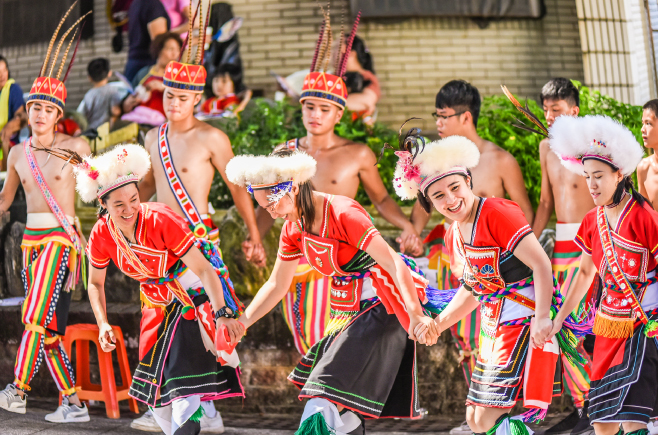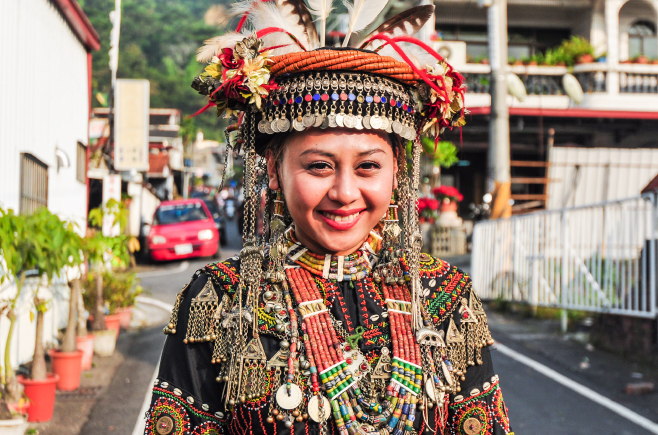Taiwan's Traditional Clothing: Unveiling The Timeless Beauty
Taiwan is a dynamic island that is tucked away in the middle of East Asia and is known for its interesting traditions and rich cultural history. Traditional dress is one of the island's numerous assets, and it has a unique place in it since it reflects the island's history, ethnic diversity, and strong feeling of identity.
This article takes us on a wonderful trip to learn about the significance of Taiwan's traditional clothing as well as its charm and timeless beauty.
All About Taiwan Traditional Clothing History And Origins
Taiwan's traditional clothing is a tapestry woven from various cultural influences. From the indigenous tribes to the Han Chinese immigrants, each group has left an indelible mark on the island's sartorial heritage. The blending of indigenous weaving techniques, vibrant colors, and intricate patterns with the elegant styles of Chinese clothing has resulted in a breathtaking array of traditional garments.
The indigenous tribes of Taiwan possess a wealth of traditional clothing that reflects their deep connection with nature and spiritual beliefs. Each tribe showcases its unique attire, showcasing exceptional craftsmanship and weaving skills passed down through generations. From the meticulously hand-woven patterns of the Amis tribe to the vibrant geometric designs of the Paiwan people, these garments are a visual feast of cultural expression.
Additionally, Taiwan's traditional clothing is imbued with rich symbolism and reflects various aspects of life and culture. Colors, patterns, and embellishments hold deep significance, representing blessings, prosperity, marital status, and spiritual beliefs. Whether it is the use of auspicious red, the inclusion of phoenix or dragon motifs, or the intricate detailing symbolizing unity, these garments become a tangible reflection of cultural values and aspirations.

Taiwan's traditional clothing is a tapestry woven from various cultural influences
Beyond Fashion: Taiwan's Traditional Clothing As Living Cultural Treasures
Taiwan's traditional clothing is more than just fabric; it is a vibrant tapestry that tells stories of ancestral traditions and cultural pride.
Qipao/Cheongsam
The Qipao, also known as the Cheongsam, holds a significant place in Taiwanese fashion. Introduced to Taiwan during the Chinese migration in the early 20th century, the Qipao quickly gained popularity and became an integral part of the island's cultural landscape. This form-fitting dress, often made from silk and adorned with intricate embroidery or patterns, exemplifies the fusion of Chinese and Taiwanese cultures. The Qipao is commonly worn for special occasions, such as weddings or cultural events, where it showcases the harmonious blending of tradition and modernity.

The Qipao is commonly worn for special occasions
Hanfu
Hanfu refers to traditional Chinese clothing that dates back to ancient times. At the heart of traditional Chinese clothing lies Hanfu, a term encompassing a wide range of garments such as robes, jackets, and skirts. Hanfu garments are typically made from luxurious silk fabrics, adorned with intricate embroidery, and feature flowing lines. While Hanfu has deep roots in Chinese culture, it has also found a special place in the hearts of Taiwanese people, serving as a symbol of cultural pride and elegance.
The Iconic Qun Gua
The Qun Gua, also known as the Taiwan traditional wedding dress, is a symbol of elegance and grace in Taiwanese weddings. This gorgeous two-piece ensemble showcases a loose-fitting, high-collared jacket paired with a flowing skirt, creating an elegant and graceful look. Crafted from luxurious silk fabric in auspicious colors like red, gold, or pink, the Qun Gua is a masterpiece of intricate embroidery. Its vibrant hues and meticulous craftsmanship carry deep meaning, symbolizing joy, luck, and prosperity for the couple's future together. Every element of this dress is rich in symbolism and reflects cherished traditions. The embroidery featuring phoenix and dragon motifs represents harmony, good fortune, and marital bliss.
Furthermore, the inclusion of the auspicious double happiness character adds an extra touch of celebration to this joyous occasion. The choice of colors is also significant, with red symbolizing happiness and luck, while gold embodies wealth and abundance. Embrace the beauty and cultural significance of the Qun Gua, an embodiment of elegance and wishes for a blissful journey into matrimony.
Indigenous Attire
Taiwan is home to various indigenous tribes, each of which has its own distinctive cultural practices and aesthetic preferences. Each tribe has a unique aesthetic that includes vivid colors, artisanal textiles, and fine craftsmanship. The intricately woven skirts of the Atayal tribe and the vibrant handwoven tunics of the Paiwan tribe are just two examples of the clothing that bears witness to the tribes' close relationships to nature, spiritual beliefs, and tribal identities. Indigenous clothing, adorned with symbolism and precise craftsmanship, is a bright celebration of Taiwan's many indigenous cultures.

Paiwan people in beautiful traditional dress dance at the Wedding Ceremony in Taiwu Village
In conclusion, Taiwan's traditional clothing embodies a rich cultural heritage, transcending fashion trends. Each garment carries ancestral spirit and values. From patterns to colors, every aspect holds cultural significance. They represent deep-rooted traditions and beliefs, not mere fabric. These garments symbolize ancestral wisdom, community bonds, and cultural identity. Every stitch speaks volumes about the rich tapestry of Taiwan's heritage, inviting us to delve into its captivating narrative.
Taiwan is a fascinating travel destination that offers a unique blend of ancient history and modern innovation. However, before planning your trip, it is important to be aware of the entry requirements and visa regulations. At Taiwan Immigration Services, we are providing the most convenient method for travelers who are applying for an e-visa to travel to Taiwan. This technique enables visitors to get an e-visa from the comfort of their own homes without leaving. To provide the greatest experience, please review Taiwan visa rules before beginning your applications since certain nations can use this form of visa.
Related Articles
- Tainan City's Modern Transformation: A Glimpse into Urban Life
- Best Beaches In Taiwan You Need To Visit
- Penghu Island Taiwan Top Unmissable Things To Do
- Jiufen Village Wonders - A 2023 Guide To A Classic Taipei Trip
- Seasons In Taiwan - Discovering The Weather And Best Time To Visit
- Taipei Metro Navigating Efficient System With Comprehensive Guide
- Things To Do In Taichung At A Glance Of Treasure Trove
- Exploring the Time in Taiwan Landscape: A Traveler's Guide
- Houtong Cat Village Taiwan - A Feline Paradise For Cat Lovers
HOW CAN WE HELP?
APPLY WITH CONFIDENCE
|










